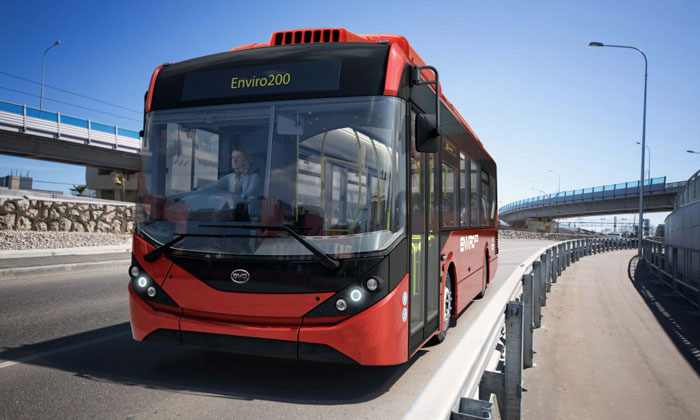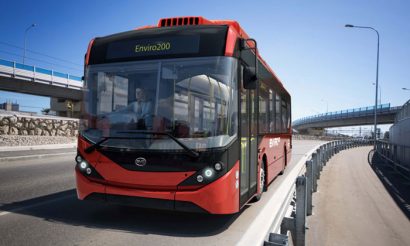Three more fully-electric bus routes for London
- Like
- Digg
- Del
- Tumblr
- VKontakte
- Buffer
- Love This
- Odnoklassniki
- Meneame
- Blogger
- Amazon
- Yahoo Mail
- Gmail
- AOL
- Newsvine
- HackerNews
- Evernote
- MySpace
- Mail.ru
- Viadeo
- Line
- Comments
- Yummly
- SMS
- Viber
- Telegram
- Subscribe
- Skype
- Facebook Messenger
- Kakao
- LiveJournal
- Yammer
- Edgar
- Fintel
- Mix
- Instapaper
- Copy Link
Posted: 6 July 2017 | Intelligent Transport | 2 comments
Transport for London (TfL) and the Mayor of London, Sadiq Khan, have announced three more electric-only bus routes – the latest in a series of measures to tackle London’s toxic air.


Transport for London (TfL) and the Mayor of London, Sadiq Khan, have announced three more electric-only bus routes – the latest in a series of measures to tackle London’s toxic air.


The routes being converted to fully electric buses are:
- Route 46: Paddington to St. Bartholomew’s Hospital via King’s Cross
- Route 153: Finsbury Park to Moorgate via Angel
- Route 214: Highgate Village to Moorgate via Camden
The 56 new buses will be built in the UK in a partnership between British manufacturer ADL and Chinese company BYD, and the routes will be fully electric by mid-2019.
London already boasts the largest electric bus fleet in Europe with more than 2,500 hybrid electric buses running across the Capital. The addition of new fully electric buses on routes 46, 153 and 214 will bring the total number of electric buses in London to over 170. This includes route 360, which will convert to fully electric buses later this year, and routes 70 and C1 are set to follow in spring 2018.
Recently, the Mayor announced a new £86.1m programme to cut harmful emissions from London’s existing bus fleet. Around 5,000 buses – more than half of the fleet – are set to be upgraded to meet the latest ultra-low Euro VI emissions standard, cutting pollution by up to 95%. The Mayor also set out in his draft Transport Strategy that by 2037 at the latest, all 9,200 buses across London will be zero emission.
Mayor of London, Sadiq Khan, said: “These three new fully electric bus routes will make a real difference cleaning up the air in busy parts of central London, and are another step along the way to fulfilling my ambition of making all London’s buses zero emission by 2037.
“We’ve already opened the first of our 12 Low Emission Bus Zones, and we’ll only be procuring hybrid or zero-emission double-decker buses from 2018. London’s air quality is a direct cause of illness and premature death across our city, and TfL will continue to lead the way tackling our air pollution crisis head-on.”
Related cities
London, United Kingdom
Related organisations
Transport for London (TfL)




I would be interested to know the source of the electricity which is used.
Are there any busses which use batteries which can be exchanged and charged separately. The advantage of the latter is that energy from clean sources such as wind can be used. In addition charging can take place at times when the demand on the grid is lowest.
I saw a television documentary which showed such as system in operation in the port of Rotterdam.
best wishes
Eddy Hunt
1 do electric buses have regenerative braking?
2 is it feasible to install solar cells on the roof?